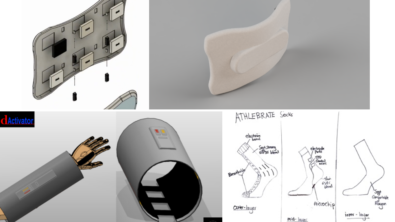Hiring Contractors

Hiring an unknown contractor to do work for your engineering organization can be nervewracking. Picking the wrong person can waste precious time and resources. If you pay too little, you might get someone who doesn’t have the skills you need or who can’t work at the same pace as the rest of your team. Paying too much can send a project over budget quickly.
It matters who, why, and how you hire. Do you hire through an agency or do you go direct? An agency is going to tack on a sizeable fee for bringing you someone, but the people they present you with should be vetted and competent. If you hire direct, a lot of contractors don’t like to interview, or may try to charge you for travel time to an interview. Some contractors are used to jobs that last months, and others may be accustomed to only working a few days for each customer. Some will not want to work on site, others will prefer to come sit in your office.
It’s obviously best if you can hire based on a recommendation who has used that person for the same kind of work. Sometimes you can find out about a contractor’s reputation by asking in CAD forums, but anonymous remarks (for or against) can be risky. Try to put together multiple forms of input to see if someone you want to hire has the skills and the work ethic you need for your project.
Here are a few other things you might want to consider before committing to a candidate:
- What is your overall budget for this work?
- What skills do you need?
- Do you know anyone or will you have to go through an agency?
- Why are you hiring this person?
- Another mouse to get work done faster?
- As an assistant to current staff?
- Skill that you don’t have in your current staff?
- Combination of worker/mentor to help train your current staff while getting real work done?
- Does the work need to be done on-site, or can it be done at the contractor’s office?
- Is it work that requires special equipment, such as a large format printer or 3D Scanner?
- Does this require the contractor to bring his own computer and CAD license?
- Remember you can rent Solid Edge for short term projects
- Does the project require access to your data management system?
Sometimes your Solid Edge reseller can provide access to people with the expertise you need. Don’t forget to look to the Solid Edge Community for highly skilled specialists. If you’re looking for someone good with high precision flexures, or wiring, or piping, or rotational molding, or nano-device design, expertise in some specialties may be difficult to find.
Many of these factors will depend on the age, skill, experience, and so forth of the individual contractor. Don’t write off someone too quickly who proposes something that you initially think is out of bounds. There may a good reason for it. A good contractor in some situations will be able to work remotely, which will be less costly for you. The range of experience level that you will find in independent contractors will be immense. From someone who just got let go from a full-time job yesterday to someone who has been independent for 20 years. If you primarily need help with cleaning up drawing documentation, that’s one skill level. If you need someone to create a master model that will be used as the basis for a line of surfaced products, that’s a different hire altogether.
Evaluating the skill of a contractor can be difficult, especially if you’re not a user yourself. My advice to a manager trying to hire specialist talent would be to enlist the help of one of your best CAD users as a filter. We all know interviewers can exaggerate from time to time, and knowledge in the subject area is often useful in detecting hyperbole. Some things you can verify such as training on such-and-such a topic at a particular reseller office. Solid Edge certification should also be easy enough to verify. Samples of work can be crucial. Will the contractor be able to understand your workflow, and will you be able to make use of the data he provides?
Sometimes you may just need someone who can take direction from others, and sometimes you may need someone who can make good decisions as the situation changes around them. A good contractor can be flexible, even if he/she is not completely familiar with your particular methods. They should be able to pick up Ordered or Synchronous models and continue work in the same style. The best contractors should be able to teach your other employees a few things, or make an educated commentary on the existing state of models.
During the hiring process, make sure you lay out all the requirements as explicitly as you can. Misunderstandings, or just hoping the situation will change can lead to a lot of disappointment on both sides, possibly jeopardizing the project time and cost targets. The right candidate who doesn’t feel comfortable with your terms is at best a risky candidate.
There is a fuzzy line sometimes between a contractor and a consultant. A consultant will help you improve your processes, and maybe outfit your existing employees with new skills to solve on-going problems. Sometimes you can hire both for the price of one by having the consultant work with your people on a real project, and presenting a report with recommendations. This is one of the things I enjoyed doing most when I was contracting. It’s very challenging work, but also very satisfying to see people implement new, more productive ways of doing things.
Once you’ve started working with someone, just be aware that changes and uncertainty are going to cause your contractor stress. If you have just agreed to an hourly rate, they will feel less stress than if you agree to a fixed price for the project. I’ve been in situations where I was required to do a project over 3 or 4 times based on unforeseen changes. A contractor will not want to absorb those costs. If you determine that some rework was necessary because of mistakes the contractor made, just be ready to back up what you say. Sometimes your project manager has to learn to curb the desire to endlessly fine tune details.
Once you get a good job completion under your belt, maintaining the relationship with the contractor will be much easier than getting it started. Much of the relationship in both directions is initially built on trust, and it can be tough to repair if it goes wrong at some point.
Sometimes a bit of jealousy can arise between a contractor and your regular employees. You might be able to diffuse this by explaining why you had to bring in outside help. If the contractor is good, he can establish credibility with your other engineers and designers quickly. A bad contractor is probably not going to be a contractor for very long, so longevity in the field is a fairly reliable measure of success.
There are as many different situations as there are companies and contractors, so writing a complete guide to guarantee success is probably not possible. In my experience, the most successful contracts were those where my skills lined up with the companies needs the best. The same is true on the other side of the desk – companies get the best value and benefit when they find the right person. It seems obvious to say, but sometimes managers will settle for someone who is less skilled, and less expensive, or maybe they take a risk on someone who they aren’t sure of simply because there are no clearly “right” candidates. With the internet, fast file transfer, and applications like Skype and WebEx, the world is a much smaller place, and you don’t have to settle for someone willing to commute 30 miles each way every morning.
Best of luck in your next contractor hire.



Comments